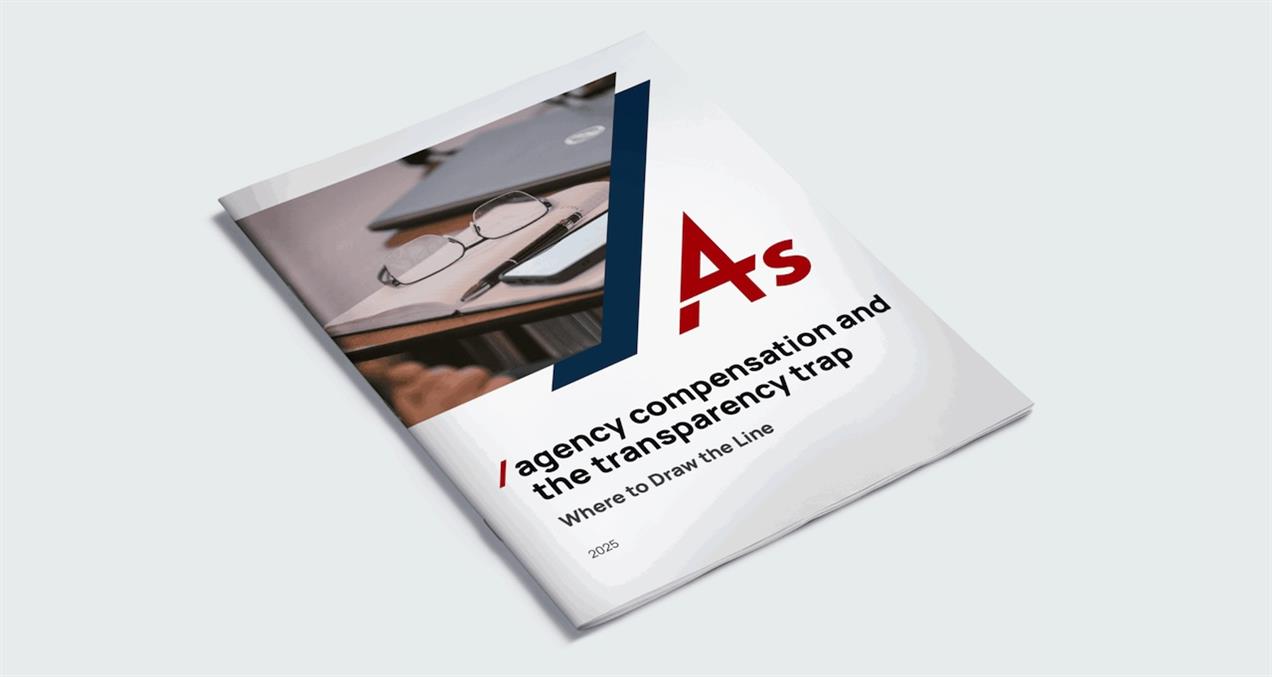Topic
- Agency Compensation
- Agency Operations / Business Transformation
- New Business Consultants
- Search Consultants
The report revealed that more than half of agency search consultants desire to both shift away from requesting ‘unnecessary’ financial information and from hourly compensation methods.
“Transparency” is all the rage nowadays.
It’s what everyone is asking for, from consumers expecting products that do as advertised to competitions expecting honest campaign submissions with unfabricated results.
However, it can be argued that there are cases in which transparency is taken too far. In the eyes of the American Association of Advertising Agencies (4As), some parts of a brand’s search seeking a new AOR is one example.
Sometimes, an agency search consultant will ask agencies to provide individual salaries, overhead, profit margins and other select pieces of information to determine the agency’s pay. The compensation method may vary, from hourly to outcome-based.
“Transparency is a huge piece of the industry,” said Nicole Rizzo, SVP, business insight and intelligence, 4As. “Clients, marketers, advertisers want transparency. The principle is a good thing.”
However, she added, when it’s taken too far, transparency can negatively impact the relationship between agency and client.
“It can trap the relationship into a cost mindset, instead of focusing on outcomes,” she explained. “[Which is] really where we want to be finding solutions for clients.”
So, Rizzo conducted surveys, interviews and held discussions with 25 search consultants for the organization’s latest report, “Agency Compensation and the Transparency Trap: Where to Draw the Line.”
“Our members want to understand why search consultants were still asking to deconstruct rates and asking for profit and overhead,” Rizzo told Campaign. “It just seems like a very outdated method.”
The report reveals two key findings: More than half of agency search consultants desire a shift away from hourly compensation models, and many also consider the disclosure of overhead and profit unnecessary.
Deconstructive Criticism
The “Transparency Trap” report argues that industry search consultants requesting agencies to disclose detailed financial information such as salaries, profit and overhead is invasive. The question is: Are these details necessary?
According to the report, opinions remain a bit divided. When asked if providing such information was necessary to an agency review, 20% responded that it was. While 8% said it wasn’t, 36% answered that it’s both unnecessary and unhelpful. An additional 36% said that those details aren’t necessary, but they’re helpful.
“I’m not really sure who it’s helpful for,” Rizzo told Campaign. “Is it helpful for benchmarking? Is it helpful for search consultants to collect data?”
One consultant who believes the financial information is unnecessary but helpful explained in the report that because agencies have different overheads due to a variety of factors, “it is helpful to compare apples to apples.”
“This is a talent-based industry,” another consultant said. “As such, I want as much of my fee going to the people working on my account, not overhead. The industry has a turnover issue, and I believe maximizing salaries within the agency fee is one way for clients to negate it.”
Despite the varying results, Rizzo said that she was “pleasantly surprised” with the search consultants who find deconstructing the compensation rate unnecessary. According to the report, 40% of the consultants surveyed never ask agencies for such financial disclosures.
“They feel there are other ways to evaluate an agency and conduct a search than taking that unnecessarily granular and time-consuming old process,” she said.
Change of Method
The survey conducted for the “Transparency Trap” report noted that opinions on changing the method of agency compensation remain divided: While 52% either strongly (16%) or somewhat (36%) favor changing away from hourly-based compensation, 32% remain neutral and 16% are in opposition.
Other methods of compensation involve those that are more flexible and outcome-oriented. Rizzo, who personally prefers these nontraditional methods, told Campaign that she has been trying to encourage agencies to consider other methods besides hourly.
“It’s time to shift away from time to value,” she said. “Speed and efficiency should not reduce the value. The faster you do something does not limit the value of it.”
According to 4As’ report, the most popular compensation model among the surveyed consultants is a fixed fee, in which 13% ranked it No. 1. In total, this method received 25% of the total votes, which was carried out by having the respondents rank their top three methods.
One consultant said in the report that, ultimately, both the agency and client would benefit in a performance-based compensation model, not hourly.
“Outcome-based compensation is an interesting opportunity,” another said. “AI will reduce the time required for certain agency tasks.”
With the increase of AI usage in almost every industry, it has aided in shortening the time it takes to complete a given task. Rizzo said that the report’s overall message is that AI will disrupt compensation, for both an agency and consultant.
“The search consultants are a big piece of this puzzle,” she added. “They’re in a unique position of influence, and as they have, they’re being paid to have to advise marketers and advertisers.”
Factoring in the convenience that AI has provided, will the hourly compensation method continue to be the most common? Rizzo said she doesn’t believe so.
“A lot of things have been adopted in the industry,” she explained, “But compensation, for some reason, has stood still. I don’t think hourly rates are going to stay. It’s not a good business model for the agencies.”
The full 4As report can be found here.
Related Posts

02/13/2026
Guest Post – Co-Creation with Agencies: Designing Solutions Grounded in Real Agency Pain Points

01/09/2026
Seven months in: Justin Thomas-Copeland’s Plan to Futureproof the 4As – and the Industry



